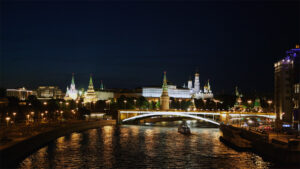The administration of US President Donald Trump declared December 6 that from now on the U.S. government would recognize the city of Jerusalem as the capital of Israel. The result has been quite the political cacophony, with condemnations from Trump’s traditional opponents across the United States, a wide bevy of countries – particularly those in the Middle East with an Islamist bent – and throughout the United Nations system.
So what’s the big deal? Israel has held all its capital business in Jerusalem for decades, but nearly all countries run their embassies out of Tel Aviv. The issue is regional politics. Israel conquered the bulk of the city of Jerusalem in wars that occurred after its modern founding in 1948, and as the city is important for three mainline religions, it is often also considered the capital of the once (and future?) Palestinian state. By claiming Jerusalem, the Israelis are not all that indirectly claiming that the Palestinians cannot have it. Trump’s recognition similarly implies that the United States has given up on any meaningful two-state solution, instead siding wholly with Israel – the Palestinians be damned.
As such, the issue of embassy-placement and capital-recognition has been a hot button topic in all things Middle Eastern ever since Israel declared Jerusalem the united capital of Israel in 1980.
But before we condemn or extol the virtues of the Israeli government or the Trump administration, let’s keep a few things in mind.
First, there is not one Arab government that loves the Palestinians. Though maybe not for the reasons you’d think. Before 1948, the Palestinians were the forward-thinking, secular, economically vibrant jewel of the Levant (and by extension, the Middle East). Geography and ports made them a cosmopolitan capital, and a religiously and ethnically diverse population – reflected by Jerusalem – ran contrary to what we see in Wahabbist-states like Saudi Arabia or Shia-hardliners in Iran. As such, they earned the envy or worse of Arab governments everywhere who considered the Palestinian way of life a threat to the fabric of nepotism that was the regional norm. When the Israelis displaced those Palestinians – first in their Independence War of 1948 and later in the 1967 and 1973 wars, the fervor of the celebrations in some Arab governing institutions was only matched by the hypocrisy of their condemnations. So something happening now that heats up the Palestinian issue isn’t really something that any Arab governments feel is particularly problematic. (That is, outside of those countries who host a large Palestinian diaspora and so see riled Palestinians as less something to be encouraged than to be contained.)
Second, the Israelis have physically – and unilaterally – altered their relationship with the Palestinians during the past fifteen years. There is now a thirty-foot-tall concrete wall with precious few access points separating Israel proper from most Palestinian-controlled territories. Even if every Palestinian could simultaneously grab a gun and charge the nearest Jew all at once, the Palestinians simply lack the access to do much anything more than scream. Palestinian suicide attacks dropped off to almost zero not because the Palestinians had a collective change of heart about all things Israeli, but because they are on the other side of an uncrossable barrier. If there is a third intifada, it will rage in Palestinian lands rather than anywhere that the Israelis (or anyone else) cares about.
Third, there is less than a zero chance of a war erupting because of this. Syria is in civil war. Libya is a farce of a non-state. Lebanon is edging into (another) civil war. Iraq is shattered. Jordan is a satellite. Egypt is folding in upon itself into an isolationist dictatorship. Saudi Arabia and Iran are fighting a not-quite-cold war. Groups like al Qaeda and the Islamic State are at war with other Muslim entities; they cannot and have never been able to get at Israel. Sure, groups like Hamas (based in the West Bank) and Hezbollah (based in Lebanon) will continue to lob rockets into Israel, but no one in the region has the capacity to even obliquely threaten Israel with invasion. Israeli diplomats would never say this on the record, but this is the best strategic situation the Jews have been in since the decades immediately after Moses.
Finally, there isn’t an Israeli-Palestinian peace process to protect. Any possible peace between the two peoples require unified positions on both sides in favor of rapprochement – and an underlying strategic or at least economic reason for that rapprochement. None of that currently exists. The Israeli government sits fairly hard to the right and isn’t about to trade land for peace when the wall gives Israel all the peace the government thinks they’ll ever get. The Palestinian “government” is split between Hamas in the Gaza Strip, which favors taking the fight to Israel, and Fatah in the West Bank, which is indirectly on the Israeli payroll. The wall also eliminated the role of Palestinian labor in the Israeli economy, reducing the Palestinian territories to open-air prisons completely dependent upon Israeli power infrastructure and international handouts for operation. About the only institution keeping the “two state solution” alive is the United Nations, and even UN efforts are little more than going through the motions.









